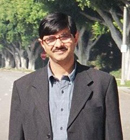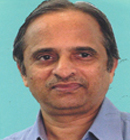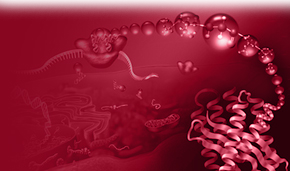|
|

|
|
Science Sparks @ ACTREC
|
 13th June 2022 13th June 2022 |
Vol. No. 11; Issue No. 530 |
|
|
Publications
|
|
1. Raj M, Shinde A, Ingle A (2022). Microbiological monitoring of Rodent pathogens using Multiplex method of PCR. Journal of Laboratory Animal Science.7 (1): 18-24.
2. Thorat R, Ahire S, Shinde A, Ingle A (2022). Cost-effective decontamination of conventional laboratory animal rooms using hydrogen peroxide aerosols. Journal of Laboratory Animal Science. 7(1): 32-36.
3. Tambe M, Pinto A, D'Silva SZ, Singh M (2022). Identification of the novel HLA allele, HLA-DRB1*14:50:02, in an individual from southern India. HLA.
4. Verghote F, Sargos P, Christodouleas JP, Murthy V, Baumann B, Dirix P, Berghen C, Paelinck L, Vercauteren T, Fonteyne V (2022). International consensus guidelines for adjuvant radiation therapy for bladder cancer after radical cystectomy: Update from an IBIS workgroup. Practical Radiation Oncology.
5. Jobanputra K, Nayak L, Jain H, Shet T, Epari S, Bonda VN, Thorat J, Bagal B, Laskar S, Rangarajan V, Agrawal A, Gujral S, Khanna N, Goda J, Sengar M (2022). Diffuse large B-Cell lymphoma in the elderly: Real-world outcomes from a developing ountry. Clinical Lymphoma Myeloma and Leukemia.
6. Sunkara RR, Mehta D, Sarate RM, Waghmare SK (2022). BMP-AKT-GSK3β signalling restores hair follicle stem cells decrease associated with loss of Sfrp1. Stem Cells.
Thesis
Rahul Mahendra Mojidra. 2022. Genomic profiling of blast cells from different clinical stages of CML.( LIFE 09201404014) (Guide: Dr. Rukmini Govekar)
|
|
|
|
|
|
|
Legends of Science
|

|
Amitabha Mukhopadhyay
Amitabha Mukhopadhyay obtained his Ph.D. from the Institute of Microbial Technology, Chandigarh, in 1983. His primary research areas are cell biology, with particular emphasis on the regulation of intracellular trafficking. His other contribution is to demonstrate the feasibility of exploiting the receptor-mediated endocytic pathway to deliver a drug, specifically to macrophages, for various therapeutic purposes with reduced drug toxicity. Dr. Mukhopadhyay is a fellow of the National Academy of Sciences, Allahabad. He was a recipient of the National Bioscience Award in 2001 and; the SS Bhatnagar award in 2002.
|
|
| |

|
Vishwas Anant Bapat
Vishwas Anant Bapat received his Ph.D. from the University of Mysore in 1981. His significant work was on tissue culture of sandalwood and mulberry; Banana micropropagation technology. He established plant protoplast culture and regeneration systems and worked on in vitro mutagenesis using radiation in bananas and sugarcane to induce novel genetic variability. His other research includes rescue of endangered plants, phytoremediation of industrial waste materials, analysis of uncommon fruits/ vegetables for nutritional components, and synthesis of nanoparticles using plant cells. He is an elected fellow of the National Academy of Sciences, Allahabad.
|
|
| |
|
|
|
|
Do You Know?
In 1990, Tasuku Honjo and colleagues demonstrated that PD-1 knockout mice develop autoimmune syndromes, suggesting that the receptor PD-1 is an immune checkpoint.
|

|
|
|
|
|
� 2022 Advanced Centre for Treatment, Research and Education in Cancer (ACTREC)
|
|
